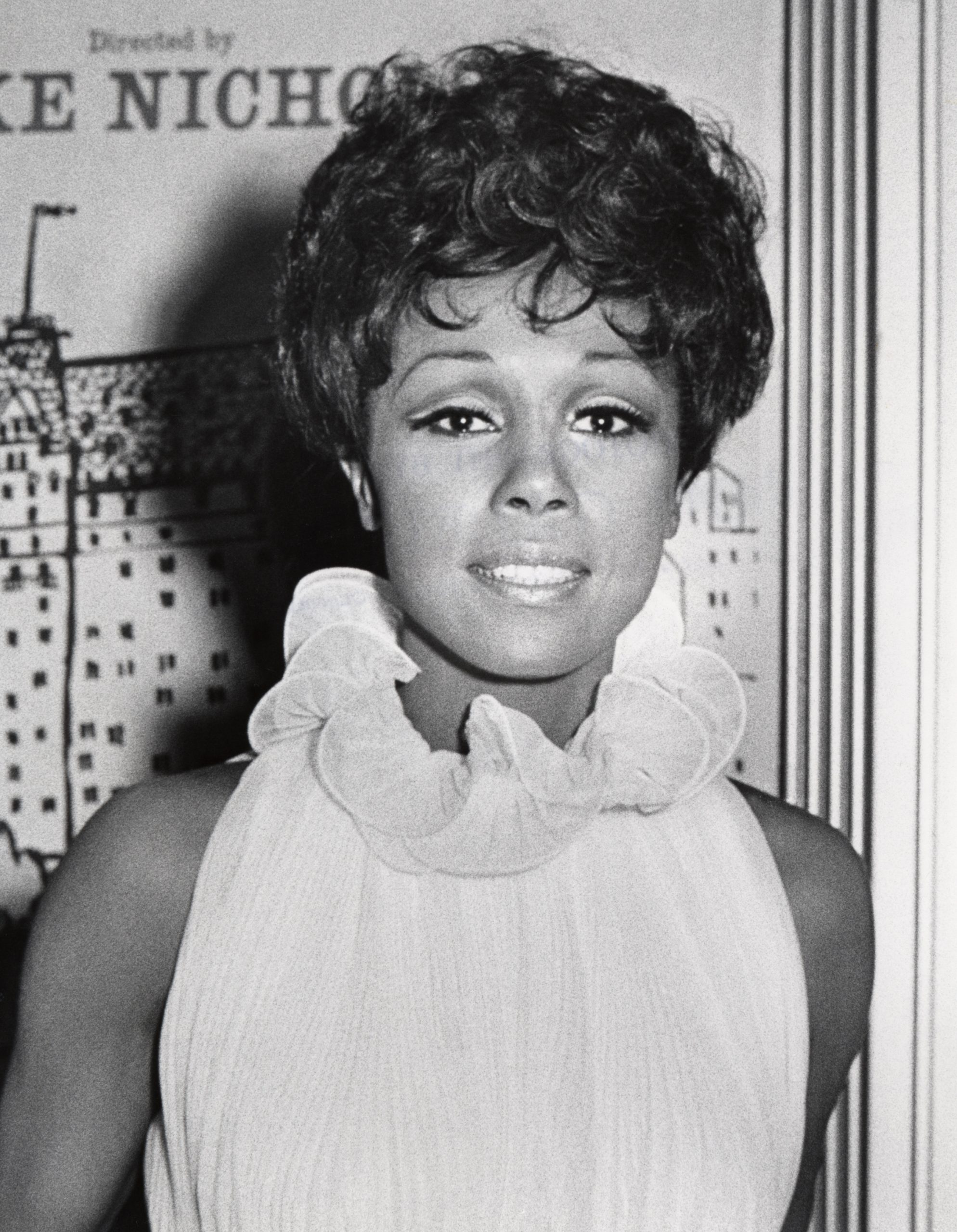
- Golden Globe Awards
1969: Diahann Carroll – A Life of Firsts

Golden Globe winner and three-time nominee Diahann Carroll had one of the most unexpectedly successful careers, given the times and the country in which she was born.
The decision of Richard Rodgers, of Rodgers and Hammerstein fame, to cast the young African American actress in the musical No Strings in 1962 was one of those moments when a huge barrier was broken in the entertainment business. The show was not only a long-running hit on Broadway, but the formerly unknown Carroll also became the first actress of color to win a Tony. It would not be the only time she accomplished a first.
Carroll grew up in Harlem, which she described as “a fairy tale. I had two loving parents, very involved with making me happy, trying to educate me. If you had parents that told you the world is yours, that’s pretty special.”
The world, as it turned out, would be hers. Beautiful and elegant on top of being a great talent, Carroll was also the first Black woman to win a Golden Globe, for the immensely popular TV series Julia. The year was 1969.
In the show she played a nurse, widow, and single mother, and was the first Black female lead on TV in a non-stereotypical role, not playing a domestic worker. She was also one of the first high-profile single mother characters on television. Carroll received another nom for Julia a year later, and one for Best Actress – Musical or Comedy in 1975 for Claudine.
By the time Halle Berry paid tribute to Carroll in her acceptance speech for Introducing Dorothy Dandridge in 2000, younger fans knew her mostly from her role as Alexis Carrington’s nemesis Dominique Deveraux on the camp 1980s series Dynasty. “This moment is so much bigger than me. This moment is for Dorothy Dandridge, Lena Horne, Diahann Carroll,” Berry said.
And even in Dynasty and its subsequent spin-off The Colbys, Carroll broke barriers. “I wanted to be the first black b**** on television,” she told an interviewer. “I called my manager and said get the word around. I had never played a role quite this unlikeable, and I liked that, because it doesn’t happen very often, particularly for minorities. It’s almost required of them that they are nice people. These roles are boring.”
Despite her successes, Carroll was very aware of the inequality she faced: “It was very difficult. Most people had never dealt with a Black person, much less a Black person in show business, and a demanding Black person. I was most assuredly clear how I wanted to look, what I wanted to say, what roles were correct for me. And there were people who had great difficulty with that,” she told Gwen Ifill on The HistoryMakers show.
Her later appearances included parts on Grey’s Anatomy and White Collar. Carroll will always be known as a courageous, boundary-breaking artist who never shied away from speaking her mind and standing up for others.

